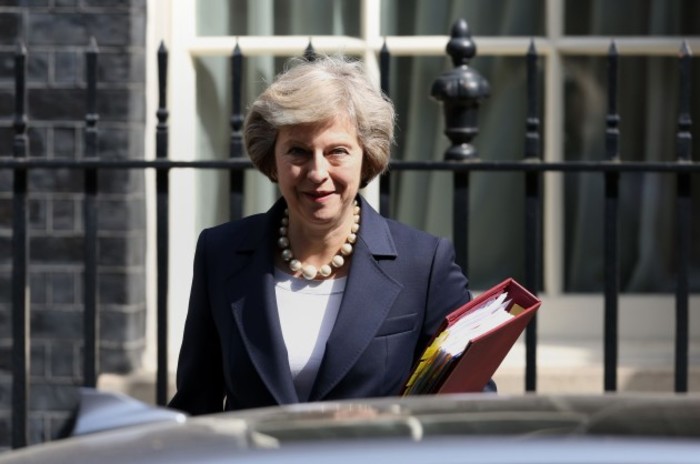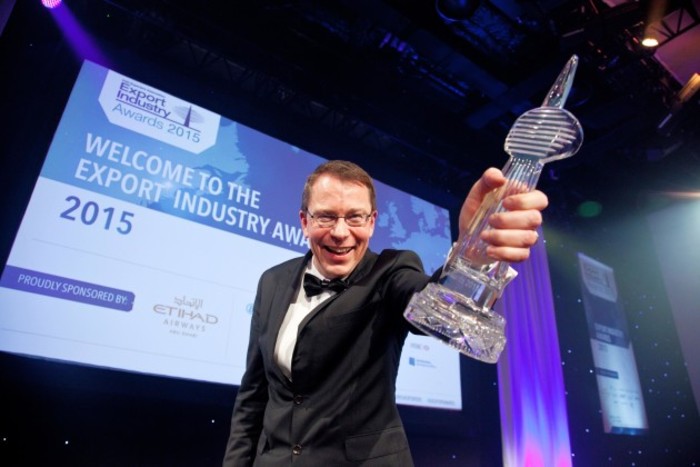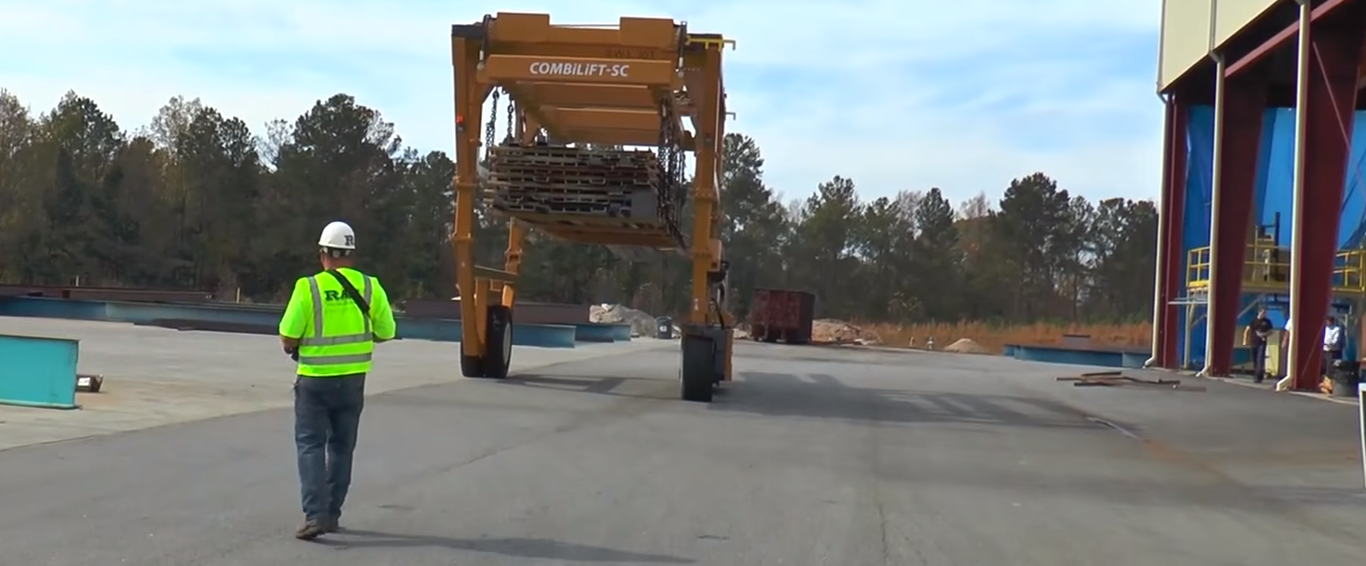One of Ireland's top manufacturers could shift business to the North if the UK rolls out tariffs
But Combilift chief Martin McVicar says Brexit is more of a ‘ripple rather than a disaster’.
COMBILIFT, ONE OF Ireland’s biggest manufacturing companies, would likely relocate staff to Northern Ireland if the UK brings in tariffs when it leaves the EU.
That is according to the company’s managing director Martin McVicar, who set up the forklift maker with Robert Moffett almost two decades ago.
The Monaghan-based firm is one of the largest indigenous manufacturers in the Republic, employing about 350 people with an estimated turnover of about €170 million.
Speaking to Fora at a briefing held by the Irish Exporters Association on the impacts of Brexit, McVicar said that the company would look at shifting operations across the border if the UK decided to introduce import duty of more than 5% in the wake of the referendum result.
“If import duty is minimal, less than 5%, that wouldn’t be enough for us to decide to manufacture in the UK,” he said.
“But if import duty was more than 5%, then it would definitely be a trigger for us to manufacture in the UK.”
Import tariffs
Import tariff are charges imposed on goods being imported to a country. Currently there are no import charges between Ireland and the UK as they are both EU member states.
However, the UK’s vote to leave the European Union has cast doubt on the trade terms it will agree after leaving the bloc and raised fears that there may be a duty imposed on imports from remaining member states.
These fears became more pronounced in the wake of reports during the week that UK trade secretary Liam Fox is pressuring new prime minister Theresa May to pull out of the customs union as part of the exit strategy.
 UK prime minister Theresa May
UK prime minister Theresa May
A customs union is when countries decide to not impose charges on imports of any state within the deal and then impose a common tariff on goods coming in from outside the customs union.
It differs from a free-trade area as under that setup member states can set whatever tariffs they like on countries which are not part of the agreement.
McVicar said that Combilift would not have a major issue with changes to the Ireland-UK trade relationship unless high import duties were introduced.
 Combilift managing director Martin McVicar at the Exporter of the Year awards
Combilift managing director Martin McVicar at the Exporter of the Year awards
“It is our biggest export market and we couldn’t let that reduce,” he said. “It’s not on my radar at the moment, but we are investing €40 million in a new factory in Monaghan that will be up and running next year.
Move north
“If we had to do something in the UK we would most likely manufacture in Northern Ireland, it would make sense. Rather than going to the mainland we would manufacture in Northern Ireland.
“There wouldn’t be any major price advantage being in Northern Ireland today versus southern Ireland unless there was that import duty.”
However, McVicar added that he was not overly concerned about Brexit and said that fears about the event may be overblown.
“There is still demand for our products and it’s not like the construction business has slowed down dramatically,” he said.
“What’s happening with Brexit, it’s not like there’s a famine or a war, or anything like the financial crash. Brexit is more a ripple rather than a disaster.”
Fora recently revealed that a company controlled by Combilift co-founder Robert Moffett has plans to develop over 100 houses in Drogheda.






